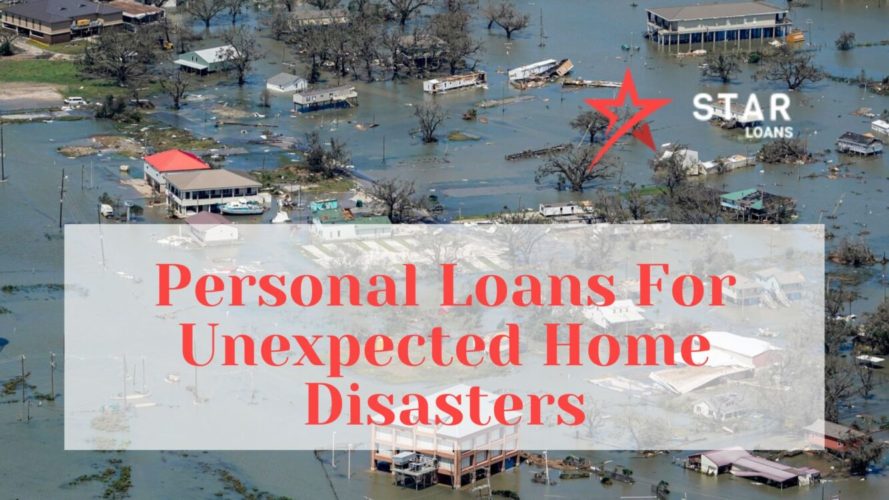
If a home disaster, such as basement flooding has harmed you, you may be eligible for disaster loan assistance from loan providing organization. In actuality, plumbing and sewage leaks are just two examples of the many house problems that can result in basement flooding.
Homeowners, renters, charity groups, and company owners can all apply for disaster home loans. If your home, personal property, or business has sustained physical damage as a result of a declared disaster, or if your business has suffered economic harm, financial organizations offer low-interest, long-term loans.
We have advice on what to do after a basement flood, whether you accidentally walked into an in-ground pool that you didn’t remember installing there or you just want to know how to be ready in case flooding occurs again.
Table of Contents
For Whom Are Home and Property Disaster Loans Available?
Renters and homeowners must reside in a disaster-affected area and have suffered physical damage in order to get personal loans online.
- Credit Requirements: Financial support is in the form of loans, as organization providing financial assistance must have a reasonable assurance that such loans can and will be repaid based on adequate credit and repayment capabilities.
- Collateral Requirements: To the extent that it is available, collateral is required for all home disaster loans over $25,000. The preferred type of collateral is real estate. The Loan Provider won’t reject a loan due to a lack of collateral, but if there is any available collateral, he will ask the borrower to put it up as security.
What Are The Rates and Terms For Home Disaster Loans?
Disaster losses that aren’t entirely covered by insurance or other sources can be helped with these loans. Lawfully low interest rates and often affordable fixed monthly payments are features of disaster loans. Interest rates are fixed for the duration of the loan and are dependent on the date the disaster occurred. After the loan closes, repayment typically starts 12 months later. During this time, interest will continue to accrue. Apply for a personal loan in California to cover the expenses for basement renovation.
Will Basement Flooding Prevent My Home Loan From Going Through?
No homeowner likes to awaken to find their basement flooded, but it still occurs to many of us. Take quick steps to lessen the severity of the flood damage.
Once you’ve taken the necessary precautions to safely remove the water from your basement, assess your financial position to determine how you’ll pay for the necessary repairs. Consider urgent cash loans to help get your house clean and dry as soon as possible if your insurance won’t cover the charges.
What a Homeowner Should Do After a Basement Flood?
According to Basement Systems, entering the standing water in your basement is more of a what-not-to-do than a first step to take when your basement floods.
You might risk electrocution or shock if there is any exposed electrical wiring in the area, in addition to the possibility that the water contains dangerous bacteria, as might be the case, for instance, if a sewage leak caused the flood. An electrician should be contacted right away to turn off or remove any electrical equipment that may have been exposed to water. After the electrician, you could need to contact a few different specialists, depending on what caused the flood.
Does Home Insurance Cover Basement Flooding?
Whether you have flood insurance is the key factor in determining whether your homeowners insurance will pay for a basement flood.
You’ll need to document everything for purposes, so after your electrician or licensed plumber gives you the all-clear to enter your basement, make sure to take lots of pictures or videos of the damage. Note that certain standard house insurance providers could not automatically include flood coverage as part of your insurance policy, which would mean that any items with water damage would not be covered. It’s crucial to call your insurance provider and ask if your house is covered for flooding.
If you do this and your basement floods, your insurance provider ought to send out an adjuster to evaluate the damage before getting in touch with a water remediation/restoration firm to arrange an on-site visit.
The Bottom Line
There are disaster home loans available for homeowners and renters in cases of unforeseen home damages. For damages that cannot be fully compensated by insurance or other recoveries, low-interest, long-term loans are an option.
Both renters and homeowners have the option of borrowing large sums of money to replace lost or broken personal items. Numerous factors can result in basement flooding. Some of these circumstances might be covered by your homeowner’s insurance policy, but not all. It’s critical to evaluate your homeowner’s insurance coverage to see which particular risks are covered and which are not. These routine occurrences, which are normally covered by homeowners insurance, can result in basement flooding.